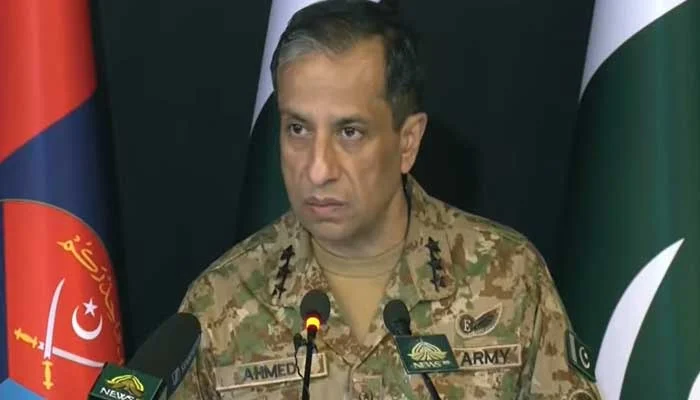Pakistan Armed Forces have reaffirmed their commitment to peace following the recent military conflict with India. However, they have also issued a clear warning that Pakistan will never bow to threats or pressure.
Director General Inter-Services Public Relations (DG ISPR), Lieutenant General Ahmed Sharif Chaudhry, told Anadolu Agency that peace remains Pakistan’s top priority. He stressed that no one should mistake Pakistan’s desire for peace as weakness.
“The truth is, India is not the United States, and Pakistan is not Afghanistan,” he said. “India is not Israel, and Pakistan is not Palestine.”
The Pakistan Armed Forces carried out a large-scale counterstrike named Operation Bunyan-um-Marsoos after India’s unprovoked attacks. The military hit several Indian targets across different areas. These strikes were described as “precise and proportionate” by officials.
The offensive came in response to continued Indian aggression across the Line of Control (LoC) and within Pakistani territory. India had claimed its actions were aimed at “terrorist targets.”
But Pakistan Armed Forces shot down six Indian fighter jets, including three Rafale aircraft and a Mirage 2000. They also destroyed dozens of Indian drones. During the four-day clash, India’s advanced S-400 air defense system was also taken out.
The short but intense battle between the two nuclear-armed countries ended on May 10. A ceasefire was brokered by the United States after 87 hours of fighting.
According to the Pakistani military, 53 people died during Indian strikes. These included 13 armed personnel and 40 civilians.
The conflict had been triggered by an attack in Indian Illegally Occupied Jammu and Kashmir (IIOJK) last month. Twenty-six tourists were killed in Pahalgam. India quickly blamed Pakistan but failed to provide any evidence.
Lt Gen Chaudhry said India was using that attack as an excuse for its aggression. He said India’s internal issues—terrorism, extremism, and hatred—were fueling chaos. He also accused the Indian government of targeting minorities, especially Muslims and Sikhs.
“The situation is getting worse inside India,” he noted. “New Delhi is pushing its people toward more anger and violence.”
He added that many terrorist incidents in Pakistan were supported and encouraged by India. “We have strong evidence of Indian involvement, and we’ve already shared it with the International Court of Justice,” he said.
The Pakistan Armed Forces warned that if India attacks again, the response would be immediate and forceful. “We will never surrender to tyranny or aggression,” said the DG ISPR.
He confirmed that India had used missiles and drones to strike several locations in Pakistan. “They thought we wouldn’t respond. They were wrong,” he added.
“If we are provoked or attacked again, our response will be swift and harsh. There should be no confusion about that.”
He reaffirmed that the country’s forces are respecting the ceasefire agreement signed on May 10. However, he made it clear that any future provocation by the Indian Army would receive a strong response.
Separately, Lt Gen Chaudhry issued a strong warning about the Indus Waters Treaty. He said any attempt by India to stop Pakistan’s water would lead to lasting consequences.
“It would be madness for anyone to think they can block water to a nation of over 240 million,” he stated in an interview with a private media outlet.
He added that the Pakistan Army strictly follows the instructions of the political leadership. “We honor all commitments made by our government,” he said.
Prime Minister Shehbaz Sharif had earlier confirmed the air combat success. He said the Pakistan Air Force had downed six Indian jets. This included Rafale fighters and the Mirage 2000, as confirmed by Lt Gen Chaudhry.
“We only targeted the aircraft,” said the DG ISPR. “We could have destroyed more, but we showed restraint.”
The message from the Pakistan Armed Forces was loud and clear. Pakistan seeks peace, but any act of aggression will be met with force.


